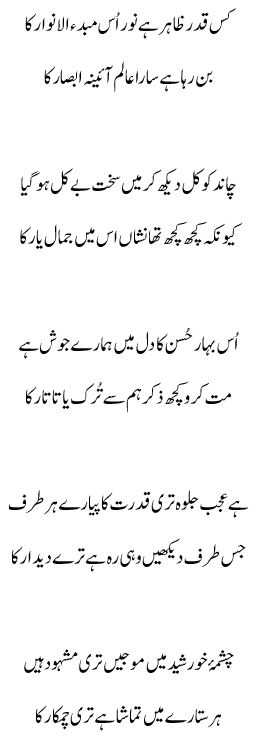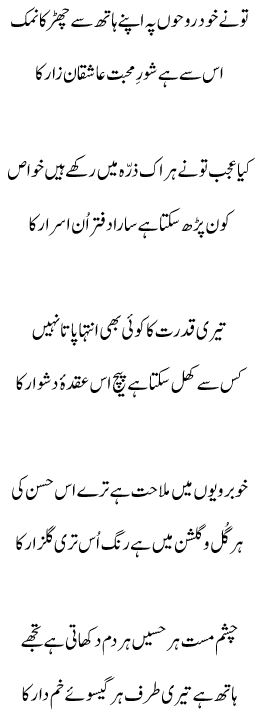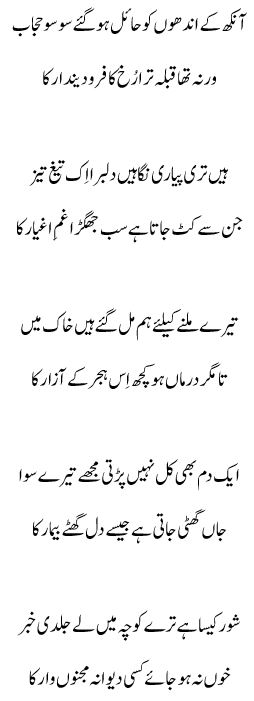Poem in Glorification and Remembrance of Allah
by The Promised Messiah a.s
Praise of the Lord of All the Worlds (Urdu Poem & Translation)
How manifest is the light
Of the Source of all lights,
Turning the Universe into a mirror
For eyes to see His reflection.
When I saw the moon yester-night
I was overwhelmed with longing,
For it reminded me a little
Of the beauty of my Beloved Lord.
His eternal beauty
Has set our hearts afire;
Mention not to us the beauty
Of the Turk or Tartar.
O Beloved! Passing strange and wonderful
Is the spectacle of Your glory all around;
Whichever way we turn,
Is the path that leads to You.
Your own light burns bright
In the resplendent fountain of the sun;
In every star can be seen
The spectacle of Your glowing beauty.
With Your own hands have You
Sprinkled salt upon the souls,
Causing great commotion of love
Among Your anguished lovers.
You have invested each particle
With amazing qualities;
Who can ever decipher
Your boundless mysteries?
No one can fathom
The extent of Your limitless power;
Nor can anyone unravel
The mysteries of this intricate knot.
It is Your beauty that lends charm
To every beautiful face;
So are the hues and colours of each flower and garden But a reflection of Your loveliness.
The love-laden glances of a beautiful face
Ever remind us of You;
Every curly lock points its finger
In Your direction.
To every believer and non-believer,
Your countenance alone should be the focal point; But alas! the sightless suffer
From a thousand veils.
O my Beloved, Your enchanting glances
Are like the sharp sword
Which cuts off all bondages
Of loyalty and love for others.
Only to win Your love
Have I reduced myself to dust;
Hoping, the pangs of separation
May be assuaged a little.
Except when I am with You
I am ever restless;
Like the sinking heart of a patient,
Life seems to be ebbing away.
Wherefore this noise in Your neighbourhood?
Pray, tarry not!
Lest some love-lorn lover
Should perish unknown.
[Surma Chashm Arya, Ruhani Khaza’in, Vol. 2, p. 52]



